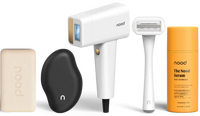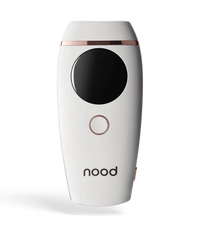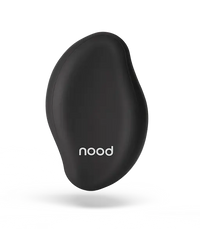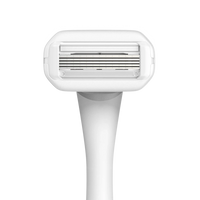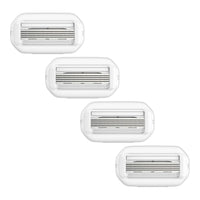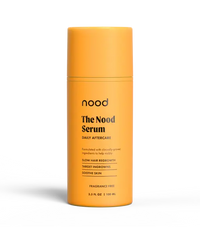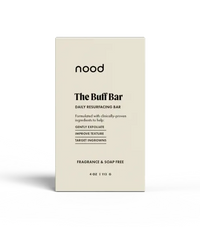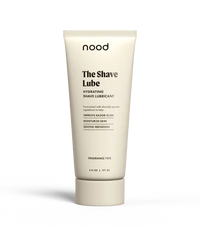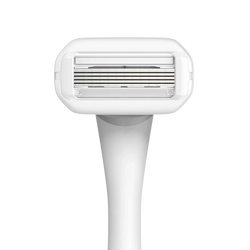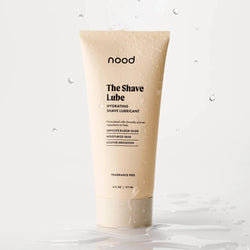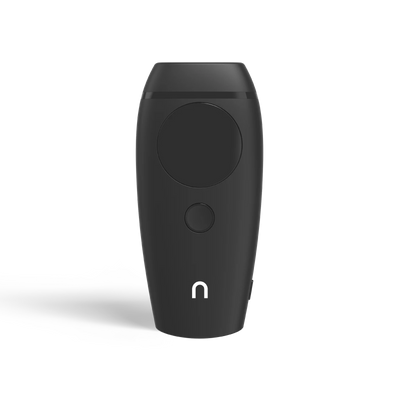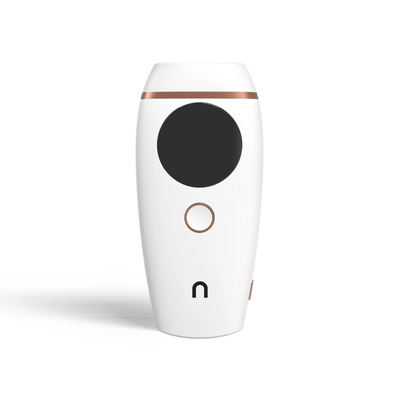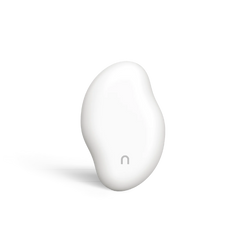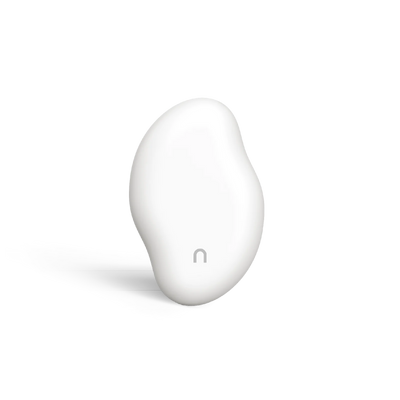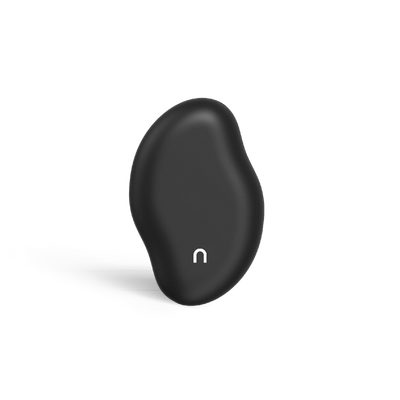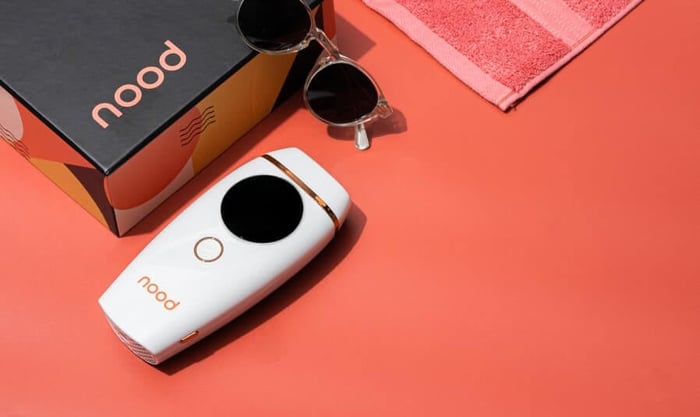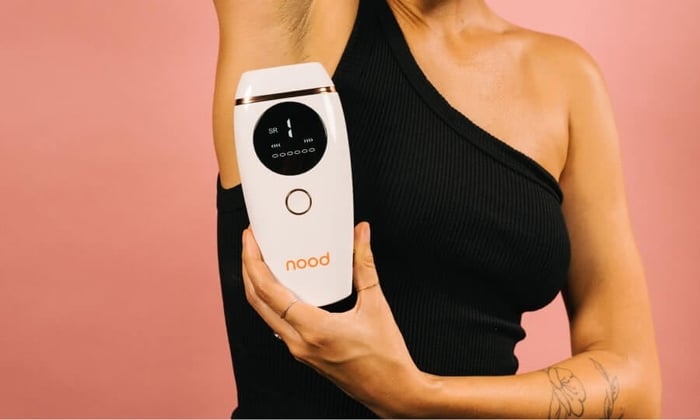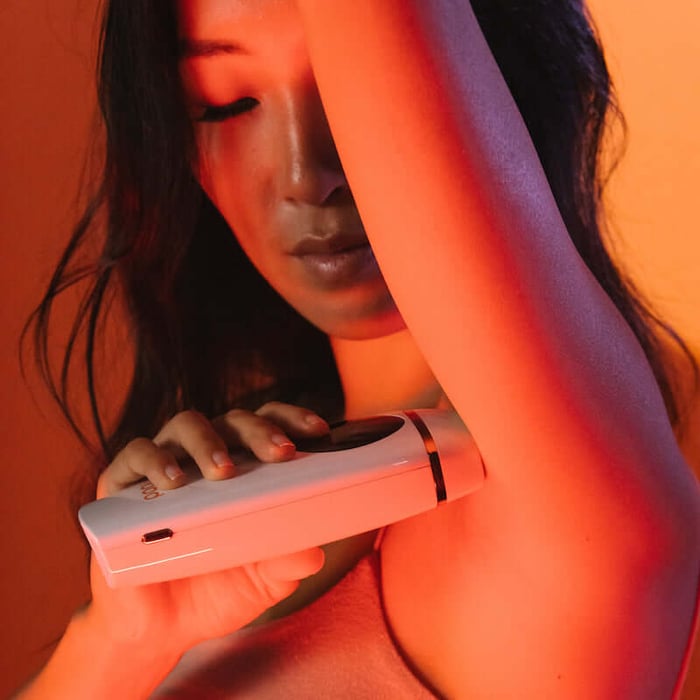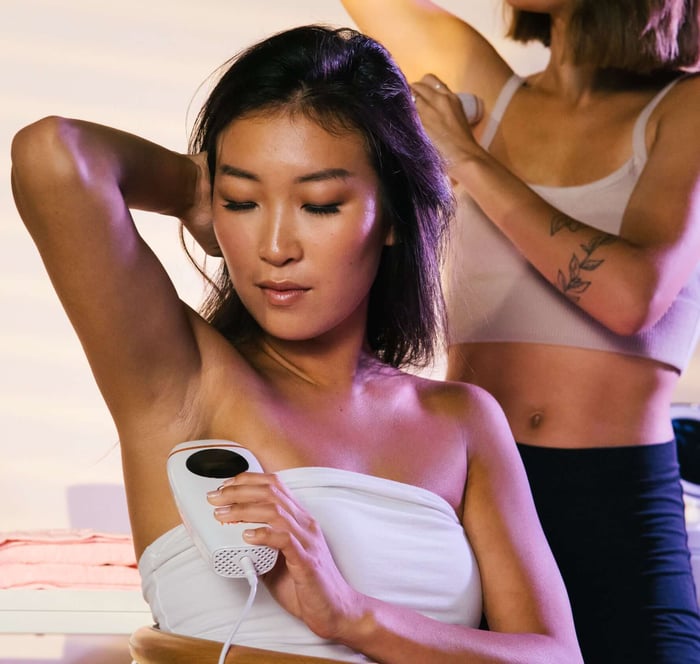
The Full Guide to At-Home Laser Hair Removal: What to Expect & FAQs
Shaving’s pretty easy, but it doesn’t offer long-term results. Waxing will give you baby soft skin, but it’s painful, only lasts a few weeks, and can be tricky to do at home. Laser treatments for hair removal are great, but they’re expensive and not super convenient if you just want to bust some underarm fuzz before heading out the door.
That’s why at-home laser hair removal has become popular as an efficient, affordable way to take care of hair in all the wrong places…if that’s what you’re going for. 😉
Does at-home laser hair removal actually work? Yes, at-home laser hair removal actually works! It removes hair quickly and effectively. With the right treatment plan, you can enjoy permanent reduction of unwanted hair.
We’ve put together an at-home laser hair removal guide to answer all your burning questions, including whether DIY treatment is right for you.
Table of Contents
What is at-home laser hair removal?
How does IPL hair removal work?
IPL vs. Professional Laser Hair Removal (Laser)
How much does at-home laser hair removal cost?
Is at-home laser hair removal safe?
Where can I use laser hair removal on my body?
Side effects of at-home laser hair removal
Tanning & laser hair removal: Tips & Precautions
How to prepare for at-home laser hair removal
What to expect during IPL treatment
Typical results from at-home laser hair removal
Can I use laser hair removal on tattoos?
Is IPL treatment safe to use on my freckles?
Can I use at-home laser hair removal while using Retinol or acid-based skincare products?
What is at-home laser hair removal?
At-home laser hair removal uses light energy to keep unwanted hair at bay.
How does laser hair removal work? Laser hair removal works by targeting the melanin at the hair follicle with a laser. Heated light energy damages the hair follicle during an active growth cycle. Over time and repeated treatments, you can expect permanent reduction of unwanted hair.
Common lasers used in professional treatments include:
- Diode laser
- Ruby laser
- Alexandrite laser
- Nd:YAG
At-home IPL hair removal is a little different in the method, but the result is the same: you hit the unwanted hair at the follicle for long-lasting, even permanent hair reduction.
How does IPL hair removal work?
IPL hair removal works by targeting the hair follicle with Intense Pulsed Light, or IPL. The targeted hair follicles absorb light from the IPL device. The heat this generates destroys the sac around the follicles, preventing new growth. It’s a safe, effective way to get salon-ready results at home and on your own.
IPL vs. Professional Laser Hair Removal (Laser)
IPL and professional treatments differ in the type of light and wavelengths used to zap hairs at the follicle. At the salon, you’ll likely encounter a single, focused laser. IPL instead uses a broadband pulsed light.
The light source doesn’t matter much in the long run when it comes to permanent hair removal. Both types effectively nix unwanted hair.
Do IPL treatments take longer than laser treatments? No! Permanent hair removal with IPL does not take longer than permanent hair removal with laser. You can expect meaningful reduction from IPL within a very quick period of time and most people see an 85% reduction within just 8 weeks and permanent results with single monthly maintenance over the following 4-6 months.
Benefits of IPL
We think the cost savings alone are worth it, but there are additional benefits of IPL over salon treatments, including:
- Convenience: You don’t need to leave your house to take care of those armpits. That makes any touch ups even easier.
- Seamlessness: A few minutes here and there is an easy add-on to your regular beauty routine.
- Efficiency: Most at-home IPL treatments only take about 10-15 minutes per treatment. Touch-ups are even quicker.
- Comfort: None of us truly enjoy spreading our legs for strangers under bright lights, much less adding a painful procedure to the mix. Home is where your sweatpants live.
- Cost-effectiveness: The upfront cost for some at-home devices may seem expensive at first glance, but you’ll save money in the long-run with IPL at-home hair removal.
View this post on Instagram
How much does at-home laser hair removal cost?
A big benefit of at-home laser hair removal is the cost savings over time. Here’s a 4-year comparison with popular hair removal treatments:
- Shaving $480
- Waxing $3,120
- Salon Laser $2,500
- The Flasher 2 by Nood $189
Are you ready to get started? Pay with Shop Pay and Nood is yours for 4 interest-free payments of only $47. Each Flasher 2.0 handset comes with a 90-day money back guarantee. We’re that confident that you’ll love your results.
Is at-home laser hair removal safe?
At-home laser hair removal is safe and effective when used as directed.
It’s typically also safer than professional treatments. You’re working with a lower intensity light, and built-in safety features include sensors that prevent accidental flashes. FDA-cleared Nood devices also include a UV-filtered lens that blocks harmful ultraviolet light and protects your skin.
Before we get into any contraindications, it’s important to get a big myth out of the way first: Laser treatments WILL NOT GIVE YOU CANCER, including melanomas
That said, going DIY isn’t for everyone. You shouldn’t use at-home laser hair removal if:
- You have epilepsy. The Nood device uses flashing lights to transmit heat to your hair follicles. That can trigger a seizure in those with photosensitive epilepsy.
- You haven’t hit puberty. We don’t recommend starting laser hair removal until you’ve turned 18.
- You have a sunburn. We’ll dig into this one, but avoid tanning (even sunless tanning) in the weeks before and after your treatments.
- You have very dark skin. We wish we could say Nood worked on all skin tones, but it’s unfortunately not the case. Laser hair removal works best when there’s contrast between hair pigment and skin tone.
- You have blonde, red, or grey hair. IPL treatments are effective only for brown and black hair tones. The melanin that gives your color hair is what attracts the light from the device. Unfortunately lighter hair colors do not contain enough melanin to make for effective treatments.
- If you’re pregnant or breastfeeding, we suggest you check with your OBGYN or PCP before trying at-home laser hair removal. We just like to stay on the safe side.
Which hair colors work best?
At-home IPL treatment works best with dark hair (brown and black). Generally, IPL and laser hair treatments won’t work well (or at all) on gray, blonde, or red hair.
Darker skin types also make it difficult for the device to distinguish between the hair follicle and your skin. Fair, dark, and medium skin tones in between are all fair game.
We put together a chart of skin and hair combos that will and won’t work with The Flasher 2.0 (and most IPL devices).
*Smiley faces mean Nood will work for that combination. Sad faces mean it probably won’t be as effective.
Where can I use laser hair removal on my body?
You can use laser hair removal on your arms, underarms, legs, chin, upper lip, neck, back, and bikini line.
Can you use at home laser hair removal on pubic hair? You should always follow the instructions on any hair removal device. Nood’s Flasher 2.0 is designed to work anywhere you have hair, including pubic hair. However, many at-home laser hair removal devices recommend not using the product on pubic hair outside of the bikini area.
In general, you shouldn’t use at-home laser removal around the nipples, inner ear, and eyes. Avoid dark moles, warts, and freckles that are growing hair. If your skin is damaged in any way — including sunburns and open cuts — avoid those areas with your DIY treatments.
Men should exercise caution using at home laser hair removal around the face.
View this post on Instagram
Side effects of at-home laser hair removal
At-home laser devices are generally a safe way to get as close as possible to permanent results for hair removal.
Fewer than 1% of people have experienced:
- Swelling and redness: Any skin irritation at the hair follicle that go away within 3 days.
- Burns: Blistering or burns around the treated area that go away within a month.
- Hyperpigmentation/hypopigmentation: Any light or dark patches of skin should return to normal within about 2 weeks.
- Folliculitis: This skin infection causes inflammation at the hair follicle. Mild cases clear up within a few days with basic wound care. See a doctor if you notice the infection spreading or you come down with flu-like symptoms.
- Paradoxical hypertrichosis: This rare side effect causes an increase in the density, coarseness, or color of your hair after laser hair removal. Ironically, laser therapy is the treatment for the condition.
Everyone should wear protective eyewear if you’re getting close to your eyes. See a doctor immediately if you see spots or experience light sensitivity that doesn’t go away within a few minutes.
If any of these side effects don’t go away within the time we described, contact your doctor. If you’re on any medications, especially blood thinners, talk to your doctor before starting at-home laser hair removal treatments.
Tanning & laser hair removal: Tips & Precautions
If you’re a beach bum or love to get a regular spray tan, you may want to ease up those sun habits before attempting at-home laser hair removal. Tanning makes your skin pigment darker. The darker your skin, the more difficult it is for home laser hair removal devices to find your hair follicles.
Here are the basics:
- Use IPL before tanning.
- If you’ve been on a beach vacation recently, we recommend waiting your tan fades a little before IPL treatment.
- Same with spray tans; wait until your tan has faded before your IPL treatment. That includes at-home sunless tanning creams
- Sunscreen is already a great idea, but it’s even more important after a treatment when your skin is more sensitive. Shoot for a daily SPF of at least 30+.
- If you have a sunburn, wait until your skin has healed before using an at-home device. We recommend waiting a month after a sunburn before IPL treatments.
A good rule of thumb is to follow manufacturer guidance on sun care before and after your at-home treatment.
How to prepare for at-home laser hair removal
Always use your IPL hair removal device only as instructed. We know you’re excited to get all hair-free, but take the time to read through the manual cover to cover before getting started. It’ll include everything you need to know about making sure every treatment is safe and effective.
Here are a few more tips to get prepped for your DIY laser hair removal:
- Shave first. It sounds counterintuitive since you’re trying to avoid having to shave again, but shaving the area makes it easier for your at-home device to reach the hair follicle.
- Avoid waxing, plucking, threading, epilating, and anything else that pulls the hair at the root. The hair follicle has to be intact for your IPL to work effectively.
- If you’re targeting facial hair, dermaplaning is a good alternative to shaving.
- Try a patch test. If you’re worried about a reaction, it’s always best to figure that out with smaller areas on a patch of skin.
- Exfoliate. Gentle exfoliating is great before and after your treatment. It may help reduce ingrown hairs and slough away the treated hairs. We recommend the Revealer.
- Apply the device to clean, dry skin. Your regular shower routine is fine before your treatment, but avoid heavy moisturizers.
What to expect during IPL treatment
Most fans of at-home IPL hair removal report painless, efficient, and effective treatments. Your Nood device comes with 5 different energy levels. The higher the intensity, the faster you’ll see results. We recommend starting at a level 3 to see how your skin reacts.
Is at-home laser hair removal painful? At-home laser hair removal using IPL isn’t as painful as other hair removal treatments, like waxing or even professional laser hair removal.
You might feel some discomfort if you’re hitting sensitive areas, but it should be tolerable. Try a lower level of intensity if the sensation is too much.
How long does at-home laser hair removal take? How long at-home laser hair removal takes depends on the surface area you target. Larger areas like your legs can take longer if it’s your first time, while tackling small areas like a random chin hair could only take a few minutes. Expect each treatment to last about 10-15 minutes.
As you’re getting silky smooth, you may notice a slight burning smell. Don’t freak out. Those are leftover hairs burned during your treatment. That burnt hair (or burnt popcorn) smell doesn't mean your device isn’t working.
If you don’t smell anything burning, don’t worry — that doesn’t mean it’s not working.
Typical results from at-home laser hair removal
You should expect up to 80% hair removal if you follow a recommended at-home laser hair removal plan.
How often does at-home laser hair removal need to be done? How often your at-home laser hair removal needs to be done depends on the area targeted and the device used.
We recommend treatments twice a week for the first 2 months to start, and then once every 3-6 months for any regrowth and touch ups. Keep in mind that your IPL device is only effective in the hair growth stage. That means less can really be more for the permanent hair removal you crave.
In between treatments, avoid any additional hair removal methods that pluck the hair at the root. You can shave any errant hairs you notice since you’ll shave before your IPL treatment anyway. Hair in the regrowth stage should only get finer and sparser over time.
View this post on Instagram
Can I use laser hair removal on tattoos?
No, you shouldn’t use laser hair removal or IPL hair removal on tattoos. You can cause a bad skin reaction or mess up your ink.
Is IPL treatment safe to use on my freckles?
IPL treatment is safe to use on light freckles. If you have dark freckles or moles, you’ll need to work around those.
Can I use IPL if I have acne?
You can use IPL if you have acne. In fact, some IPL users report that it can improve discoloration from acne scarring. We just caution against using IPL at the same time as heavy duty acne treatments.
If you’re on Accutane, you’ll need to stop taking it and wait 6 months before any laser hair removal treatment. Wait at least 6 months after you’re done with laser treatments before starting Accutane.
A safe bet is to talk to your dermatologist if you’re worried about interactions between IPL and any topical skincare products.
Can I use at-home laser hair removal while using Retinol or acid-based skincare products?
If you’re on a skincare regimen that makes your skin more sensitive, we recommend waiting a week to return to those treatments after your treatment. That includes retinol or acid-based products like hyaluronic acid.
At what age is laser hair removal most effective?
Laser hair removal is effective at any age after around 18.
It’s most effective to start laser hair removal during the late teenage years. Your hair growth cycle is most consistent and hormonal changes from puberty tend to settle by this time.
Some hair removal devices may have recommended age requirements. Younger users have to be able to stick to a treatment schedule for the best results. We recommend getting started with Nood at 18.
IPL vs. Waxing
What is the difference between home laser hair removal and waxing? The difference between home laser hair removal and waxing comes down to the method. When you wax, you pull the hair at the root. IPL damages the hair follicle, causing the hair to fall out and thin out over time.
For those with a good contrast between their skin tone and hair pigment, laser hair removal is a solid option. It’s less painful than waxing and the results last longer.
If you’re not able to get laser hair removal, waxing works for any skin and hair type. You’ll just need to wax more often to keep hair-free, as it’s unlikely waxing will do anything to curb regrowth.
It’s time to show your noods.
So you’ve decided laser hair removal is right for you.
Try The Flasher 2.0 for rapid results at a higher intensity. You’re guaranteed to experience permanent hair reduction within 8 weeks or we’ll send your money back. We recommend pairing our Nood handset with products in our skincare line, too, to keep things baby soft.
Learn more about Nood or dive right into smooth, healthy skin today.
Sources
- Laser Hair Removal
- IPL technology: a review
- Lasers and intense pulsed light (IPL) association with cancerous lesions
- Paradoxical hypertrichosis after laser therapy: a review
- Light-based home-use devices for hair removal: Why do they work and how effective they are?
- Hair removal with intense pulsed light
- Combination of intense pulsed light and fractional CO(2) laser treatments for patients with acne with inflammatory and scarring lesions

